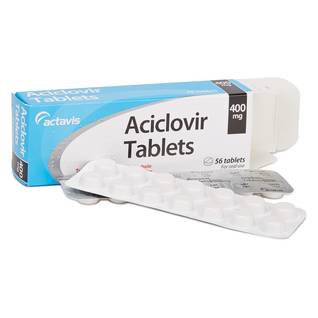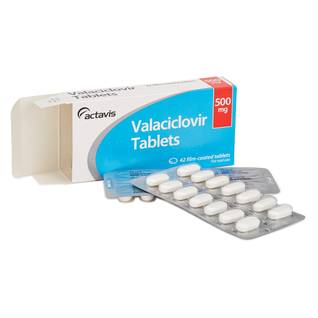
What is herpes?
Herpes is the name given to a group of viral infections that are caused by the herpes virus. There are many different types of herpes viruses including the Varicella Zoster virus that causes chickenpox and shingles, and the Epstein Barr virus which causes glandular fever. The most common type of herpes virus is the herpes simplex virus (HSV).
There are two types of herpes simplex virus: HSV-1 and HSV-2. HSV-1 usually causes oral herpes and HSV-2 typically leads to genital herpes, however this is not always the case. In the UK, infections with HSV-1 and HSV-2 are extremely common. It is thought that up to 6 in 10 people in the UK carry HSV-1 and 1 in 10 people carry HSV-2.
This guide will focus on HSV-2 and genital herpes, covering how it can be transmitted, what symptoms may look like and how outbreaks can be treated.
How is herpes transmitted?
Both forms of herpes simplex are highly contagious and are transmitted via direct skin to skin contact with someone who carries the herpes simplex virus, even if they do not have symptoms.
HSV-2 is typically transmitted through sexual contact (vaginal, anal and oral) whereby one person is infected with the virus and the other is not. The infection can be spread by an individual even if their symptoms are not visible. Taking antiviral medication can reduce the risk of spreading the virus through sexual contact, as can using a condom during sex. The most effective way to avoid spreading HSV-2 during an outbreak is to refrain from sexual contact until symptoms have subsided.
What are the symptoms of genital herpes?
Once exposed to the virus and infected with HSV-2, a person could either be asymptomatic and show no symptoms, or their infection may begin to cycle through a series of stages.
The first outbreak usually occurs 1-2 weeks after sexual contact and exposure to the virus. Usually, general discomfort is felt in the area where the virus occurs and the most common symptoms are itching, soreness and a tingling sensation in the genital area. Red bumps appear that develop into blisters and over a period of a few weeks these can develop into painful sores which scabover before healing. The initial outbreak is sometimes associated with other symptoms such as fever, headache, muscle ache and other flu-like symptoms. The initial episode usually lasts 2-3 weeks and often displays the most intense symptoms.
Recurring outbreaks are usually milder and shorter, often only lasting for 3 days. Symptoms include minor itching and often outbreaks are asymptomatic. The number of recurrent outbreaks a person suffers from widely varies and is dependent on the individual and external triggers, such as illness, sunlight, hormones and stress. Generally in the first year of infection, there is an average of four outbreaks and this decreases over time.
How do I treat genital herpes?
There is no cure to completely eradicate the herpes virus from the body. It is a long term condition that lays dormant in the body until the virus is reactivated and an outbreak occurs. Genital herpes treatments aim to reduce the number of outbreaks as well as reduce symptoms during an outbreak. The two most commonly used medications are Aciclovir and Valaciclovir, both of which are antivirals. They work by reducing the level of virus in a person’s body , which in turn controls outbreaks by reducing the severity and duration of symptoms. They can be taken on a daily basis to suppress the virus which is suitable for patients who have frequent outbreaks, i.e. greater than 6 per year. Valaciclovir has a longer duration of action compared to Aciclovir, so it does not need to be taken as frequently.
| |
Aciclovir |
Valaciclovir |
| |
 |
 |
| Outbreak treatment directions |
Take ONE (400mg) tablet three times a day for 5 days |
Take ONE (500mg) tablet twice a day for 5 days (10 days if initial outbreak) |
| Suppression treatment directions |
Take ONE (400mg) tablet twice a day. Reassessment needed every 6 to 12 months. |
Take ONE (500mg) tablet once daily. Reassessment needed every 6 to 12 months. |
| Effectiveness |
When taken at the first signs of outbreak, it is effective at both reducing symptoms and duration of the outbreak. Proven 80% effectiveness at suppressing outbreaks. |
Similar effectiveness as Aciclovir in treatment of outbreaks. Reduction in sexual transmission of HSV (must still be used alongside barrier methods such as condoms). |
| Common Side Effects |
Nausea, vomiting, diarrhoea, abdominal pain, fatigue, fever |
Nausea, dizziness, headaches, skin rashes |
Taking simple analgesics like Paracetamol or Ibuprofen will help to reduce the fever and muscle ache that can sometimes occur with the first outbreak. Furthermore, simple measures such as maintaining excellent hygiene, wearing cotton underwear and loose trousers will help to reduce the discomfort as well as duration of symptoms. We recommend having lukewarm baths and placing an ice pack on the affected area. This may provide relief for the itching and tingling sensation that can occur during an outbreak.